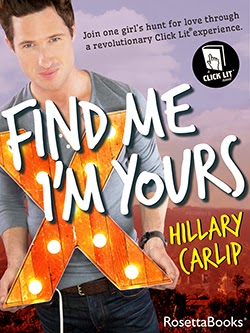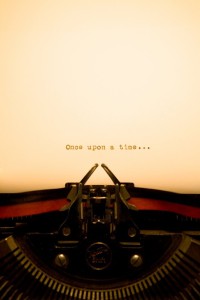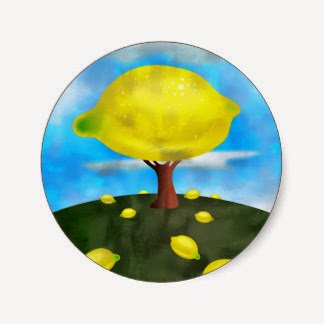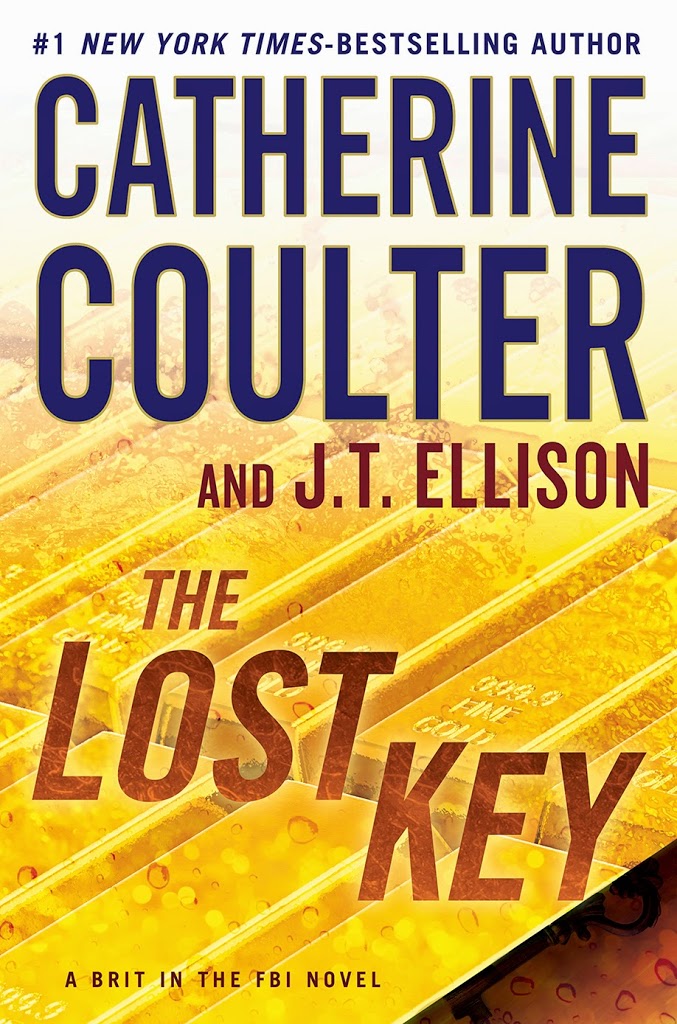Writer, tell us your story’s plot in six words. Here are a couple of examples:
THE SHINING: Novelist cures writer’s block with axe.
FLIGHT: Saving plane easy; fighting booze hard.
Category Archives: #writetip
Thoughts About Authors Changing Genres?
This is a Reader Friday-type question, but I have a question for y’all: When an author whose work you have previously enjoyed begins writing in a new genre, using a different voice, how have you responded? Do you think it’s a good idea for authors to use a pen name for a new style of writing, or are you willing to accept different voices from the same writer?
Calling For First Pages!
Just a housekeeping note today: We are interested in receiving more of your first page submissions for our monthly first-page critiques.
Here’s how it works: Send us the first page (400 words max) of your manuscript in an email or as a Word attachment, along with the title, to the email killzoneblog at gmail dot com. We’ll take the first 30 submissions we receive, then announce when we’re accepting submissions again. The pages will be divvied up among the Zoners for review.We’ll post the pages on recurrent Thursdays, along with a critique. Readers will be able to comment as well. Note: Critiques are done anonymously–writers’names will not be posted, and reviewers will not know who authored their assigned pages.
In years past we’ve had great fun doing this exercise! We’re looking forward to reading some of your pages!
Note: And actually, we don’t cut off the submissions at 30. It just takes us longer to get to ’em! 😉
This E-book is a Game Changer for Storytelling
Here at TKZ we often discuss trends and changes in the publishing industry. Over the weekend I read a book that offers a glimpse of the future of e-publishing. It turns out that the future is multi-media, interactive, and fun!
FIND ME I’M YOURS, by Hillary Carlip, is the rom-com story of Mags Marclay, a love-challenged, artistic millennial who goes on a scavenger hunt to find true love. As the story unfolds, the reader encounters Mags’ original artwork, polls, graphics, videos, and embedded links. The links connect to custom websites having to do with various aspects of Mags’ universe.
I was blown away by the multi-media features of FIND ME I’M YOURS. It took my brain a few chapters to adapt to the story’s interactivity. For example, I initially assumed that all the websites contained within the story were fictional. Then I hit one site that talked about dog parks in LA. It described actual dog parks, including the one I frequent in my own neighborhood. I felt my brain go, “Wait. What?!” (It turns out that all the custom-designed websites in the book are fictional, but many contain “real” information.)
And that’s the thing about reading a story in multimedia format. It combines the brain-intensity of reading a story with the distinctly different experience of surfing the web and social media. Occasionally, I experienced a slight disconnect between the two flavors of the reading experience. The longer I read the entertaining, fast-moving story, the more I found myself wanting to “stay” in the story. Once I fully engaged with the story, I spent less time navigating to the embedded websites.
But that may be because I have an old brain that is slow to adapt to new technologies. I’m sure that people under 30 won’t be distracted at all by interactivity. In fact, I think they’ll eventually demand multi-media content in their stories. For example, imagine if HARRY POTTER included links to interactive websites exploring Harry’s universe? Or a cozy mystery with a cooking or crafts theme, with embedded links to websites containing recipes or patterns? The possibilities are limitless. This book offers a new storytelling paradigm that is truly exciting.
After reading FIND ME I’M YOURS, I had about a thousand questions I wanted to ask the author, Hillary Carlip, and the production team behind the book. They graciously answered a few questions via email.
(And after you read the Q and A, please share your thoughts about multimedia, interactive ebooks).
Q and A with Hillary Carlip and team
FB and Twitter, she just can’t quit you
Eighteen months ago, I wrote a post in which I wondered whether social media were developing a personality disorder. Now I’m wondering whether social media are causing people to develop personality disorders.
Over the years, the content of my Facebook feed has become progressively darker. It’s reliably clogged with distressing missives–political rants, plus tales of woe about suffering animals and the environment. (I suspect this content appears because Facebook’s algorithm, like Google’s, does an excellent job of micro tracking everything I “Like”, share, or search for.) Yes, I care about these issues, but I don’t want to be slapped in the face with how dreadful everything is, first thing in the morning when I turn on the computer.
The more I read these distressing posts, the more upset I get about the state of the world. I do try to tune much of it out. For example, I skip over my friends’ political rants online–they’re tiresome, no matter what the point of view. (I don’t block these friends, because some of these people are dear to me in real life.) But I worry about my friends who are struggling with depression or some other personal issue in real life, who do nothing but mutter darkly online about the nefarious activities of Evil Government, or Evil Corporations. Is it a sign that they’re slipping over the edge?
I tell you, it’s enough to make me long for the boring old days when people shared what they ate for breakfast.
And it’s not just Facebook. Whenever there’s a breaking news, I find that I stay ahead of the headlines on cable news by monitoring Twitter updates. Twitter has become our new wire service, and anyone can use it. I’ve developed an unhealthy fixation with the #Breaking hashtag.
I know there’s a simple solution to my situation. “Turn it off! Unplug!” Easier said than done. I’ve been a news junkie all my life. Now apparently I’m a social media junkie, as well.
We’ve become a nation of social media junkies, it seems. I remember an incident from years ago. I was at a cocktail party, and feeling uncomfortable for some reason. I withdrew to a dark corner and began checking my cell phone. My husband came over to see what was wrong. Nowadays, I don’t think he’d bother. Everywhere one goes, everyone is checking their devices.
In the context of this discussion, I have to mention the Marysville shooting. I was stunned to see excerpts of the conversations that some of children involved had been posting online. I’m wondering why minors are even allowed to post profanity, plus violent and sexual content. Unfortunately, that kind of language seems to be the rule among adolescents in the Twitter-verse, rather than the exception. And that’s scary.
When one of my daughters was young, she was an early adopter of computer technology. She had taught herself to create a web site, and she posted a .gif of an animated dancing devil, complete with pitchfork. The image caused a big kerfuffle among the mothers of her friends, I recall, and I made her shut the site down. (I actually thought the dancing devil was kind of cute and creative, which tells you something about me. But I did want her to learn to respect “community standards”, such as they were back then).
Fast forward to current time. Where are the mothers and fathers who should be monitoring their kids’ online activities today? Perhaps we’ve all become used to a level of discourse that’s unhealthy. Perhaps it’s unhealthy for us, as well as for our children.
Here I was complaining about Facebook rants, but I seem to have written one of my own today. As writers, I know we all tend to be heavy users of social media. (For example, the #amwriting hashtag is a frequent trend on Twitter.) Do you think that social media is causing people to develop personality disorders, or does it merely reflect a pre-existing condition?
Reader Friday: Early Signs of Being a Writer
The TKZ Monthly Critique Group: The Shattered Kingdom
Reader Friday: When Life Gives You Lemons…
Lately it feels as if the news has been all bad, all the time. (Isis! Ebola! Market roller coaster!)
Please answer the following question:
When the 24-hour news cycle delivers nothing but lemons, how are you affected as a writer?
A. Full Stop. I make a stiff lemon-tini, and then I spend the rest of the day watching CNN Breaking News, and reading #ebola updates on Twitter.
B. I write faster! Like a depressed person who feels happier when it rains, I actually get energized by grim news.
C. Meh, the daily headlines don’t affect my writing. I just tune it out.
D. Other. (Explain.)
The Phenomenon of the Group Blog (And why we should consider returning to its power)
Note: It is my great pleasure today to welcome author J.T. Ellison as guest blogger at The Kill Zone. J.T. Ellison is the New York Times bestselling author of twelve critically acclaimed novels. Her topic today is one of my favorite subjects–the art (and future) of group blogging! ~ KL
Several years ago, the fiction world exploded with a number of group blogs. I was lucky to be a part of one of them – Murderati. Founded by Pari Taichert, the blog served as a one-stop shop for all things crime fiction. We made an early agreement to stay away from divisive issues like politics and religion, choosing to focus instead of the writing life. We started with 7 bloggers, and over the course of the blog’s life, had two dozen regular contributors. And that doesn’t include the countless guest blogs. There were births, and deaths. Triumphs and heartbreaks. Breakups and makeups. And books. So. Many. Books.
I was one of the first group of 7, and was the only one with the time (no book deal yet) and inclination to get involved in the backend of the site – the coding and hosting and all that technical stuff. And that, ultimately, was the reason I left the blog as well, but I get ahead of myself.
I grew up on Murderati. Late to writing (I started on Murderati when I was 34, published my first book when I was 37), not knowing much of what I was doing, knowing virtually nothing about the industry. The blog was both a learning experience, and a way to mark my own growth as a writer. It taught me the discipline of a deadline – for the first several years, I blogged every Friday – how important it was to think about writing, even if I wasn’t creating. In the beginning, I had to dedicate a full day to composing and editing and fretting about my blog. I ate up every ounce of advice and insight the other bloggers were sharing. I learned; we all did.
And it wasn’t just Murderati. The group blog phenomenon was everywhere. It crossed genres. There were mystery blogs and sci-fi blogs and romance blogs. There were male-centric and female-centric. We could gorge on the posts – I know the first thing I did every morning for years was get up and read everyone’s blog from all the sites. We all had communities of readers who chipped in daily with their own opinions. It was awesome.
And then we started repeating ourselves. After hundreds and thousands of entries, it was inevitable. The pressure to find a topic no one had discussed grew. People started dropping off to go work on their – you know – books. New people came in, and new life would be given. For a while.Then they too would run out of original topics, and peel away.
The decline of the group blog was gradual, but no less striking for its attrition. Facebook and Twitter gave quicker feedback, though its false intimacy at first didn’t seem to be enough to hook us all. But we began building ourselves as individuals, and boom. Talking to, instead of talking with. And like a lead singer who does a solo album, the next album had that shadow hanging over it. It was all over, though we didn’t want to admit it. We dragged on, desperately trying to keep things fresh and relevant, to work together, but all around us, the group blogs began dropping like flies, until Murderati too finally gave up the ghost.
We had a great run. Seven years of original work. Millions of words written. A built-in platform for book launches and celebrations. The respect of our peers. A community unlike any other.
Shutting down sucked.
Did the rise of “I” overcome the power of “Us”? Or did we all simply run out of things to say? I know for me, running the backend of the site was taking time away from my actual writing. I had so many deadlines that my head was spinning, and I had a massive set of personal losses that made me question the whole purpose behind the endeavor. Everything felt shallow to me – writing, blogging, reading, living – and I pulled out, knowing I wasn’t doing anyone any favors being involved anymore.
I know I missed the phenomenon that was us. But I kept telling myself it was for the best.
Oddly enough, several months later, we realized most of the Murderati folks still were blogging. Though we’d run out of things to say, and complained bitterly about the time it took away from our writing, we’d kept on blogging. We just didn’t do it on Murderati. We didn’t do it together. Together became too difficult. Too time consuming. Too much effort. But we still wanted to talk. So we did it on our own blogs. On Facebook. Alone. Built our own networks of people. Our own communities.
And damn if we didn’t miss being together.
Missed it enough to try an experiment.
With the help of Writerspace, we revamped Murderati.com. We built an archive site. Every blogger has their own pageof their old blogs. And everyone who was interested has their current blog feed automatically into the site. So we’re together, but not together. Blogging, but not on a set schedule.
I love seeing group blogs like The Kill Zone that are still going strong. I wish we could have found a way to make that happen for Murderati. Maybe someday in the future, we’ll all come together again, realizing that there is a reason animals run in packs – there’s safety and camaraderie in numbers.
What do you think? Can we ever get that heyday back again? Or have we become so divisive as a community – and we are, trust me. There’s a war going on out there – that we are better off on our own?
Thanks so much for having me today. Y’all rock!
J.T. Ellison is the New York Times bestselling author of twelve critically acclaimed novels, including The Lost Keyand When Shadows Fall, and is the co-author of the Nicholas Drummond series with #1 New York Times bestselling author Catherine Coulter. Her work has been published in over twenty countries. Her novel The Cold Room won the ITW Thriller Award for Best Paperback Original and Where All The Dead Lie was a RITA® Nominee for Best Romantic Suspense. She lives in Nashville with her husband. Visit JTEllison.com for more insight into her wicked imagination, or follow her on Twitter @Thrillerchick or Facebook.com/JTEllison14. Or, if you’re so inclined, read her blog, The Tao of JT.










